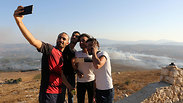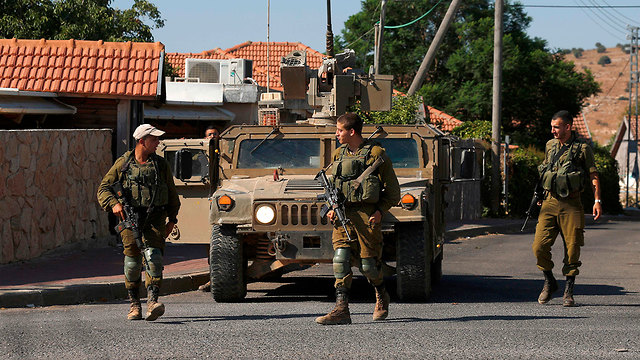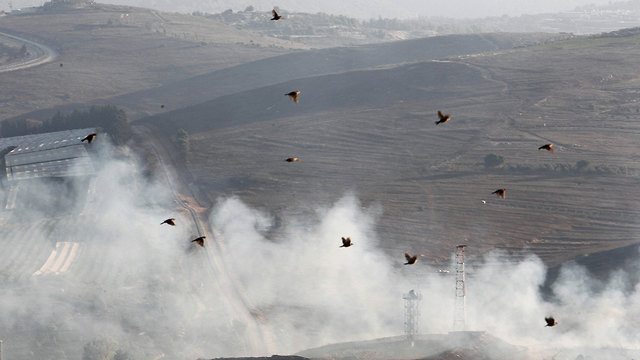
Both Hassan Nasrallah and Prime Minister Benjamin Netanyahu are pleased with events on Sunday.
It is no coincidence that the Hezbollah attack in northern Israel on Sunday ended without casualties.
The commonly used term "There were no casualties among our forces" is not applicable to what had happened today.
The IDF suffered no casualties because its commanders and fighters, from the chief of staff down through the commander of Northern Command and the divisional commanders, correctly assessed what Hassan Nasrallah and his men would do, acted accordingly and responded correctly.
For that they deserve to be complimented.
But there are two other factors behind Hezbollah's vengeful attack having failed to achieve its aims or cause injuries to Israeli forces.
The first is the superiority that the IDF Intelligence forces possess.
The second, and not less noteworthy, is the exceptional operational discipline shown by the soldiers and commanders, which contributed significantly in preparations and precautionary measures taken by the IDF.
I mention this because in the not too distant past, there were several incidents involving casualties on various fronts, which were the result of poor operational discipline.
This time the operational discipline was as good as the intelligence, in assessing Hassan Nasrallah's course of action, and employing the little tricks that can determine the outcome on the battlefield.
The IDF should be commended and so should the political decision makers.
This is another in a series of successes Israel has enjoyed in its ongoing fight with Iran and its proxies throughout the Middle East.
The main reason for success is the work of the intelligence community, but the creativity and thinking outside the box shown by the IDF commanders has proven itself again Sunday.
Nasrallah too must be commended for how he conducted himself from the incident in which drones crashed in Beirut, to the events on the border Sunday.
The Iran-backed terror group maneuvered a complicated web of constraints demanding he take action, on the one hand and refrain from causing further escalation on the other.
Nasrallah oversaw an operation that met the criteria he set for himself and his people.
As far as he is concerned, he succeeded, although there were no casualties to the Israeli side.
The lack of casualties is likely not much of a disappointment for Hezbollah's leader. He understands that if he were to have caused fatalities among the Israeli forces, the IDF would have responded much differently to the way they had Sunday, and Lebanon would have had to bare the brunt of it.
The Shiite leader is no doubt satisfied now, as he sits in his Beirut bunker, just as Prime Minister Benjamin Netanyahu is satisfied, with the performance of the IDF while he was hosting the President of Honduras in Jerusalem.
Still two warnings must be made.
The first is that Nasrallah may not settle for a single incident and send fighters to try another attack with the hope of exacting a price in blood.
It is not uncommon after a successful operation to let the guard down and IDF troops as well as civilians near the border would be wise to stay alert in the coming days.
The second warning is that Qasem Soleimani who has said he too wants revenge for Israel having foiled a planned drone attack on the Golan Heights, may be plotting a vengeful operation himself though he clearly hoped Nasrallah would carry out a painful strike against Israel in his place.
Israel is still facing the danger from Hezbollah's efforts to produce advanced missiles.
Work to achieve that has not stopped.
Nasrallah is lying to the Lebanese people and the world when he says he has enough advanced missiles already and is not trying to produce more.
His lies will likely be exposed before long but the Israeli government that will be formed after the September elections, will be faced with this danger which is second only to a nuclear Iran.



















